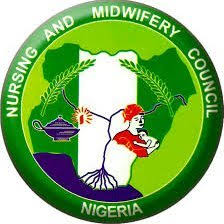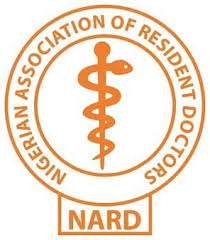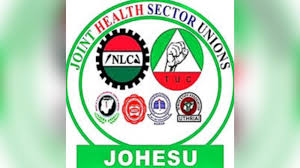The safety concerns around the use and misuse of codeine containing preparations are well documented and are assuming a frightening dimension in some parts of Nigeria. Codeine is an opioid drug similar to morphine, and has been approved and accessed over the counter in low doses for relieving patients of symptoms associated with dry cough. A dry cough is usually caused by viral infections or allergies and could occur alongside tickly cough. It usually does not produce mucus hence it is called
'non-productive' or dry cough. It occurs mostly because the back of one's throat or pharynx is irritated or inflamed. The codeine in such preparation, usually in smaller doses, serves as a cough suppressant and relieves pain associated with the stress of coughing.
However, due to its inherent properties when used in high doses over a long period of time, codeine has been associated with tolerance, dependence and powerful addictive propensity especially when used for recreational purposes. Its effects include euphoria, apathy, drowsiness and a false sense of wellbeing, amongst other effects. The addict can withstand pains of various degrees and commit crime, which in normal circumstances such individuals will not get involved in.
The Pharmacists Council of Nigeria(PCN) has noticed a rapid rise in the demand and use of codeine containing preparations, especially cough syrups by a wide spectrum of individuals from different backgrounds and social status. The situation is such that it has attracted a reaction from the Senate of the Federal Republic of Nigeria when they recently expressed deep concerns over the harm inherent in the growing abuse by housewives and minors. Information available from several parts of the globe indicates that codeine-containing medicines are being abused in a scale that is jolting the health authorities to take decisive action to halt the spread.
THE CODEINE MISUSE AND RELATED MATTER
A drug preparation ideally when produced gets to the end user through the drug distribution channel as follows:
Manufacturer/importer – distributor – wholesaler – retailer – end user. This is supposed to be religiously followed and documentations properly done. This has been the case until recently when the drug distribution in Nigeria became chaotic and an all comers affair. The existence of open drug markets in the country did not help matters. Earlier, the demand for these codeine-containing preparations was very conventional and there was no cause for alarm. However within a period spanning over ten years there was gradual increase in the demand and use of these preparations despite no reported cases of cough epidemic in the country by the appropriate authority. Two major indicators that showed the upsurge in the use included increase in the number of request and permit issuance for codeine, and increased production output by manufacturers of the codeine-containing preparations. On the demand side, there was unhindered access to the preparations by the public due to sudden increase in the number of unregulated vendors selling these products all over the country with more impact on Nigerians in northern part of the country. The main hub of supply remains the open drug markets in the country! This unhindered access created an unholy demand by the users and a corresponding economic interest in the supply of these preparations by the manufacturers. The consequence of this on the health of Nigerians is unimaginable! This is the situation we find ourselves in the country today: the abuse and misuse of drugs. Codeine and tramadol are examples of the few that have come to light. There are others in their 'incubation' stages that
are yet to come to limelight.
The events that greatly facilitated this unhindered access include the legal issues that bedeviled the efforts of PCN at ensuring that the Nigerian public is assured of quality pharmaceutical service delivery. These Legal impediments may be classified under three headings:
•Court orders and judgments against the Council;
•Slow nature of our judicial system;
•Poor nature of the applicable regulatory Laws.
As regards Court orders and judgments, I wish to point out that there were myriads of Court injunctions subsisting against the Council and 46 pending civil suits as at 2014. Whereas the pending suits were problems for the council, court injunctions were much worse. Prominent amongst the subsisting court injunctions at the time under reference were those made in the following suits:
(a) Akure- FHC/AK/CS/1/2004 NAPPMED & Anors V Minister of Health & PCN
(b) Kaduna-FHC/KD/CS/19/2004 NAPPMED & 4Ors V Minister of Health &PCN
© Benin- FHC/B/CS/64/2013 NAPPMED V PCN & Anor
In these cases, various Federal High Courts as listed above issued orders of interim injunction restraining the Council from regulating the activities of patent and proprietary medicine vendors (PPMVs) over a period spanning ten years. Within this period under review their number grew astronomically to an estimated number of 750,000 from a figure of 50,000 in PCN database before the court cases. The implication of the order of injunction made against the Council is that so long as it subsists, the Council cannot enforce the law thereby giving unfettered opportunity to all manner of persons to sell all kinds of drugs unrestrained, codeine cough preparations inclusive. Over time, with unrestricted and unfettered access to the codeine preparations, tramadol and other related products, addictions gradually crept in. The consequence is what is manifesting as codeine preparation abuse in the country today,
mostly in northern Nigeria. The damage to public health can better be imagined.
Annoyingly, most of these injunctive orders were allowed to tie down the hands of the Council for as long as 10 years in some cases. The order made by FHC Kaduna (FHC/KD/CS/19/2004 NAPPMED & 4Ors V Minister of Health & PCN) readily comes to mind, which constituted a clog in our wheel for about 12 years until it was vacated in 2015. This period represented the Dark Age in pharmacy regulation in the country. The practice was faced with moral and ethical issues that assumed a crisis status.
STEPS TOWARD REDRESSING THE SITUATION PENDING COURT CASES AND INJUNCTIONS
Between 2015 and now, the numerous court cases constituting a clog in the wheel of progress of the Council have virtually been disposed of. A testimony of the change mantra of the present administration! There has been a remarkable improvement in court proceedings and all court injunctions that have been pending for over ten years have been vacated and persons involved prosecuted and convicted as deterrence to others.
FULL IMPLEMENTATION OF THE NATIONAL DRUG DISTRIBUTION GUIDELINE (NDDG) AND DISMANTLING OF OPEN DRUG MARKETS
One major milestone of this present administration is the political will to dismantle the open drug markets in various places in the country, which for over thirty years of their existence no government has been bold enough to take such steps. These markets have been identified as sources of illicit distribution of drugs in Nigeria and housing of all forms and types of drug preparations. The government has put in place the National Drug Distribution Guideline (NDDG) and one of the
major targets for NDDG is to positively turn around the pharmaceutical sub-sector of the economy through streamlining the chaotic drug distribution system. To this end, the Honourable Minister of Health, Professor Isaac F. Adewole, FAS, FSPSP, FRCOG, DSc (Hons) has directed that all open drug markets in the country be closed down by December 31, 2018 and relocate to the approved Coordinated Wholesale Centres (CWCs) for their operations. Council, for the sake of the health of Nigerians is therefore soliciting the assistance and cooperation of State Governors in affected states for land allocations and approvals for such lands to facilitate the easy and urgent movement to the CWCs.
The current strong collaboration between the regulatory agencies (PCN and NAFDAC) and the Federal Ministry of Health to achieve a well ordered drug distribution system for the country would address the problems associated with chaotic drug distribution which include abuse and misuse of drugs.
INSPECTORATE AND ENFORCEMENT ACTIVITIES
During the year 2017 alone, PCN visited nine states of the federation FCT inclusive, and 3129 premises were sealed. Various offenders mostly the patent and proprietary medicines vendors were prosecuted for offences ranging from unethical practices to sales of drugs beyond their scope of practice. Currently five accused persons have been remanded in prison custody by the Federal High Courts in Kaduna pending the determinations of their cases.
Major fallout of this enforcement is the meeting between Pharmacists Council of Nigeria and the national, and states/FCT leadership of NAPPMED whose members' activities constitute the major source of supply to end-users of codeine preparations. Council re-emphasized the need to put the health
of Nigerians first before monetary consideration in their undertakings.
The next level in the enforcement activities is to step up monitoring of pharmaceutical premises to ensure proper record keeping especially in the dispensing of codeine containing substances as well as other related drugs. The PCN aims to ensure that records of purchase and sale of controlled drugs are properly
entered in the appropriate disposal books kept in the pharmacies and allied facilities.
REVIEW OF REGULATORY STATUTES
Concerted effort by Council to ensure passage into law a new Bill that is much more comprehensive and all efficient in tackling the menace of drug distribution system in Nigeria and delivery of efficient pharmaceutical service is underway. Council wishes to express its gratitude to the Honourable Minister of Health and the Leadership and members of National Assembly, and indeed the Speaker of the House of Representatives, Rt. Hon. Yakubu Dogara the initiator of the new bill (Pharmacy Council of Nigeria).
Special gratitude goes to Hon. Ahman Pategi & Hon. Betty Apiafi the sponsors of the bill and all members of House Committee on Health Institutions. PCN wishes to thank them all for their support and fatherly concern about the health of Nigerians.
DISPENSING OF CODEINE CONTAINING PREPARATIONS
Council wishes to express its gratitude to the leadership of Pharmaceutical Society of Nigeria and Association of Community Pharmacists of Nigeria for their support in ensuring ethical and rational dispensing of codeine containing preparations by their members with adherence to the use of Form K in their various practices. Furthermore, Council has extracted commitments from leadership of the vendors at the rural community level of their assurances in supporting Council in the war against abuse of codeine containing cough preparations.
However Council is appealing to manufacturers, importers and indeed distributors of these preparations to display more sense of ethical and moral responsibilities in the production, supply and distribution of these products since there is no evidence to show that there is cough epidemic in the country. Economic interest and financial considerations should not override the health implications associated with the abuse of these preparations. The health of Nigerians must come first before any other interest. Come 2018, it will not be business as usual. Council wishes to appeal that the issuance of permits to manufacturers and importers of codeine containing preparations be handled with more ethical responsibilities and considerations.
CODEINE CONTROL AND OTHER RELATED MATTERS WORKING GROUP (CCRWG)
PCN has put in place the machinery for setting up of a Codeine Control and Other Related Matters working group (CCRWG), a group that will consist of regulatory bodies and relevant stakeholders. The purpose of this group is to assist with the implementation of a communication strategy in the pharmacies and the patent and proprietary medicine vendors' shops in our various communities to help inform the society on the dangers associated with the abuse of codeine containing preparations and other related drugs. The strategy will also involve the design of pharmacy screening, monitoring and surveillance, and how those addicted can get assistance and be rehabilitated.
CONCLUSION
As we strive to create a sanitized drug distribution system to arrest this issue and other related matters, we are also conscious of the fact that a large number of Nigerians, cutting across different geographical and social strata are already addicted to some of these medicines. As a regulatory body, PCN is currently working with technical groups of the Pharmaceutical Society of Nigeria and other relevant stakeholders to institute programs to be driven by CCRWG to help addicts overcome the challenges of addiction. We expect these programs to be rolled out very soon.
While this challenge is primarily within the purview of the Pharmacists Council of Nigeria, the Federal Government agency responsible for the regulation of pharmacy practice and other related matters in Nigeria, we definitely cannot do it alone and would require the full support of all concerned including the judiciary and security agencies in this onerous task of cleaning up this ugly situation.
On behalf of the Pharmacists Council of Nigeria, I would like to solicit the support of all well-meaning Nigerians in this war against the abuse of medicines. Today, it is principally codeine containing medicines and tramadol; tomorrow it can be something else. Join us as we tackle the root cause of this menace.
SIGNED:
Pharm. N.A.E. Mohammed, FPSN
Registrar
PHARMACISTS COUNCIL OF NIGERIA
(Established by Act CAP P17, LFN, 2004)
Plot 7/9, Idu Industrial Layout, Idu, Abuja
E-mail: [email protected]; [email protected];
Phone: 0803-687-5869, 0806-605-5429
Website: www.pcn.gov.ng
ABUJA: Training Schedule for Basic Life Support BLS, Pediatric Advanced Life Support (PALS), Advanced Cardiovascular Life Support ACLS, First Aid, CPR, AED
PORTHARCOURT: Training Schedule for Basic Life Support BLS, Pediatric Advanced Life Support (PALS), Advanced Cardiovascular Life Support ACLS, First Aid, CPR, AED
LAGOS: Training Schedule for Basic Life Support BLS, Pediatric Advanced Life Support (PALS), Advanced Cardiovascular Life Support ACLS, First Aid, CPR, AED




